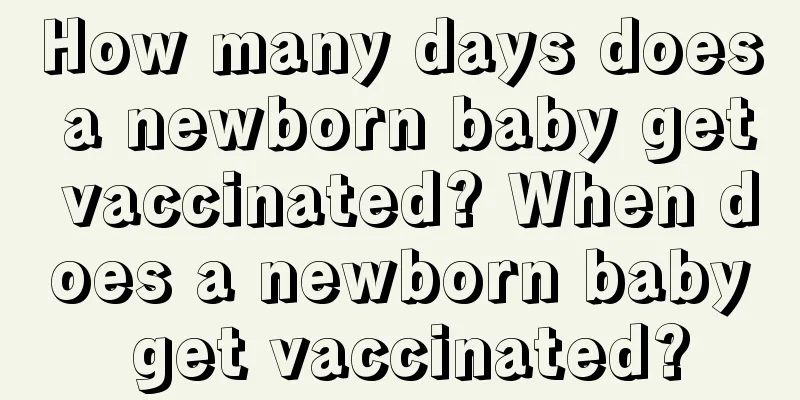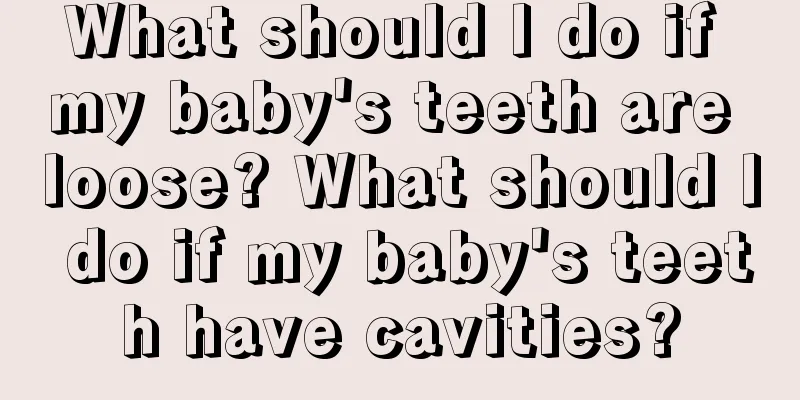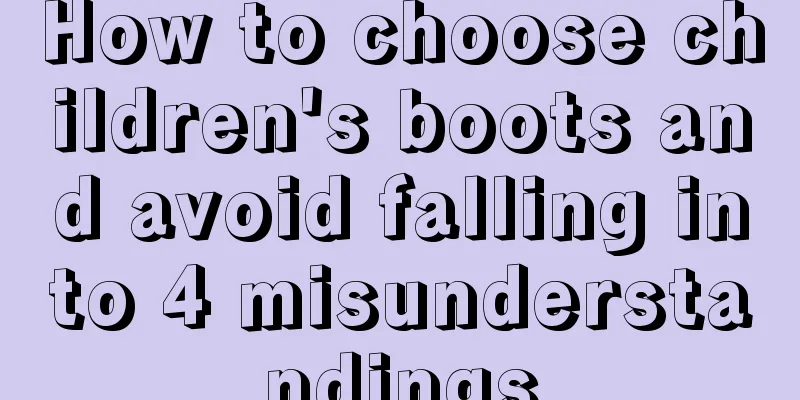How many days does a newborn baby get vaccinated? When does a newborn baby get vaccinated?

|
Newborns are not fully developed yet and have relatively poor immunity, so they generally need vaccinations. So how many days do newborns need vaccinations? When do newborns need vaccinations? How many days does a newborn baby get vaccinated?The baby should be vaccinated with hepatitis B vaccine within 24 hours of birth. The baby can be vaccinated with BCG vaccine within one week of birth. The second shot of hepatitis B vaccine should be given when the baby is one month old. The third shot should be given when the baby is six months old. If the hepatitis B surface antibody is positive after the vaccination, it means that the vaccination is successful and can be strengthened every two years. If necessary, parents can go to the local disease prevention and control center to consult about the appropriateness of planned immunization. Vaccinations at the time of the full moonThe first dose of hepatitis B vaccine is given to newborns at birth, and the second dose should be given when they are one month old. When the newborn is discharged from the hospital, the doctor or nurse will tell you where the second dose of hepatitis B vaccine should be given, usually at the health center or health center where the newborn is registered. If you still don't understand, you should ask clearly, because the third dose of hepatitis B vaccine must be given to the newborn at 6 months old to complete the basic immunity of the vaccine and form enough antibodies to resist the hepatitis B virus in the body. If the second or third dose is not given, the first dose will be ineffective. The three doses should be given at the prescribed time. If they cannot be given at the required time, they can be appropriately extended for a few days, but not more than half a month. What to pay attention to after vaccinationMost vaccines will not cause serious reactions, but due to the different constitutions of each child, some reactions of varying degrees may occur after vaccination. The main ones are local reactions and systemic reactions, and allergic reactions are also rare. To ensure safety and reduce reactions, parents should pay attention to the baby's condition before vaccination: especially younger children, who may cry, have trouble sleeping, etc.; if the child is sick, such as having a fever, do not give the baby the triple vaccine for diphtheria, whooping cough, and tetanus; do not take polio pills orally when the child has diarrhea; and it is not advisable to give vaccinations when the child is hungry, so as to avoid serious reactions such as hypoglycemia. If parents are unsure whether vaccination is appropriate, medical staff can confirm this. After vaccination, children must rest at the vaccination site for 30 minutes to observe whether they have allergic reactions or other abnormal reactions. They must not leave early without permission. This is a kind of protection for children, but it is easily overlooked by parents. After returning home, you should pay attention to whether your child has a fever. The editor reminds parents that fever after vaccination rarely exceeds 38.5℃, and it is often transient. If the body temperature does not exceed 38.5℃, no special intervention is required; if it exceeds 38.5℃, you can give your child a fever-reducing medicine that does not contain aspirin once to reduce the fever. If the body temperature rises again or the high fever persists, it is mostly caused by an infectious disease. At this time, parents should be particularly vigilant and take their children to see a doctor in time. Ask three more questions when getting vaccinatedThe first thing you must ask is the name of the vaccine. There are many babies getting vaccinated at the same time. To prevent the nurse from using the wrong vaccine, you might as well ask more questions before the injection to avoid any avoidable mistakes. The second thing to ask is the scale of the vaccine ampoule, that is, the capacity. Different age groups need different amounts of the same vaccine. The United States has had the problem of overdosing children. The third sentence is about the shelf life of the vaccine. China is actually very strict on the use of vaccines. Even vaccines at the critical point of their shelf life will be withdrawn from the circulation market. However, for the sake of peace of mind, you still have to ask about the shelf life. |
<<: How many days does it take for a newborn to be one month old? ...
>>: Gerber rice flour authenticity comparison
Recommend
The importance of kindergarten-primary school transition What does kindergarten-primary school transition include?
Many children have difficulty adapting to the tra...
How to make housework fun for kids
When children grow up, parents should let them he...
What to do if your baby gets a cold and coughs in autumn? What causes your baby's cough in autumn?
After entering autumn, the weather turns cooler a...
What kind of soup is good to drink in early pregnancy? What are the common soups for abortion?
Everyone must have heard a lot of common sense in...
What should I do if my baby has a stuffy nose? What should I do if my baby spits up?
It is common to see newborn babies spit up milk. ...
Can black mouthwash remove tooth stains? Can black mouthwash remove dental calculus?
The main function of black mouthwash is to freshe...
How to prevent constipation during pregnancy and folk remedies for constipation
We all know that female friends will suffer from ...
Which kind of milk powder is better for premature babies and how long should they eat?
Premature babies need more nutrition. Mothers nee...
Why are children too thin? How can children gain weight?
Usually, children's stomachs are very small, ...
How to cut the umbilical cord after childbirth? What are the consequences of cutting the umbilical cord late?
How to cut the umbilical cord when giving birth i...
Will scented candles expire? Will scented candles go out by themselves after burning?
In daily life, many people like to light scented ...
What are the causes and symptoms of prenatal depression? How to self-diagnose prenatal depression symptoms?
After many women become pregnant, they find it di...
Will Kunling give birth to her second child naturally? Will Kunling give birth to her second child naturally or by caesarean section?
In the blink of an eye, little Zhou Zhou has grow...
What to do if your baby stutters? What is the reason for your baby stuttering?
When babies are learning to speak, they have a st...
What to do if your baby is constipated after drinking milk powder? What milk powder should your baby drink without constipation?
Everyone should be familiar with milk powder. In ...









